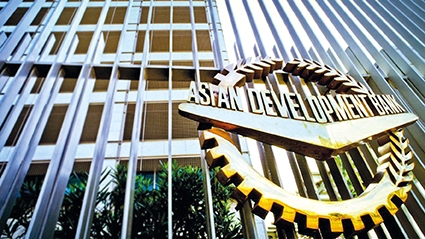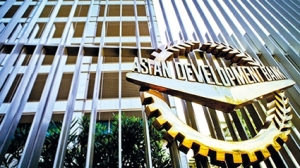Asian Development Bank Leads in Transparency
The Asian Development Bank (ADB) has been ranked first in the 2018 Aid Transparency Index (ATI), an independent measurement of aid transparency created by British NGO Publish What You Fund, released on June 21, at the Brookings Institution in Washington, D.C.
This is the first time that ADB has come in at the number one spot on the ATI, which has evaluated the transparency of the practices of major aid organizations since 2011. In 2016, ADB was scored 84.9% transparent, while in 2018, the bank’s score jumped to 98.6% - although methodology changes since 2016 make the scores not directly comparable. The ATI evaluated a total of 45 development agencies worldwide. The leading organizations, scoring at least 80% and earning the classification of “very good” were: the Asian Development Bank, United Nations Development Program, UK Department for International Development, African Development Bank, Millennium Challenge Corporation, World Bank-International Development Association, and Inter-American Development Bank.
“I am proud of the progress that ADB has made since the last Aid Transparency Index,” said ADB President Mr. Takehiko Nakao. “This reflects a cross-organizational commitment, including at the highest level, to improving the quality of our open data. Transparency is a critical aspect of effective development work and we are glad to be at the forefront of it.”
The 2018 ATI report looked at the trends in the aid sector, including the “unprecedented amounts of timely aid and development data [that] are available in an open and comparable format.” ADB is one of “only two organizations publishing all index indicators in the ATI standard, making their information fully open and comparable.”
The ATI measures organizations across five categories: organizational planning and commitments, finance and budgets, project attributes, joining-up development data, and performance. ADB received a perfect score for project attributes and scored within several tenths of a point from perfect in all other categories.
On the lower end of the spectrum, ranking below 30% for transparency, were the Japanese Ministry of Foreign Affairs (10.2%), the UAE’s Ministry of Foreign Affairs and International Cooperation (1.8%) and China’s Ministry of Commerce (1.2%).
Since 2016, ADB has made an effort of increase transparency, reviewing its practices of releasing information and adhering to high standards. ADB has significantly improved the quality and scope of the information it discloses to the public.
The Asian Development Bank, based in Manila, is dedicated to reducing poverty in Asia and the Pacific through inclusive economic growth, environmentally sustainable growth, and regional integration. Established in 1966, it is owned by 67 members—48 from the region. In 2017, ADB operations totaled $32.2 billion, including $11.9 billion in co-financing. ADB has been operating in Georgia since 2007 and is one of the country’s largest multilateral development partners. Sovereign loans to Georgia total $2.42 billion. Non-sovereign loans total $330 million. As of January 1, 2017, Georgia’s classification as a middle-income country excludes it from further access to the ADB’s concessional ordinary capital resources. The ADB says its key development priorities in Georgia are to foster inclusive and sustainable economic growth, reduce poverty, enhance regional connectivity, and improve public service delivery. Priority sectors include transport, water supply and sanitation, energy, public sector management, and finance.
By Samantha Guthrie











